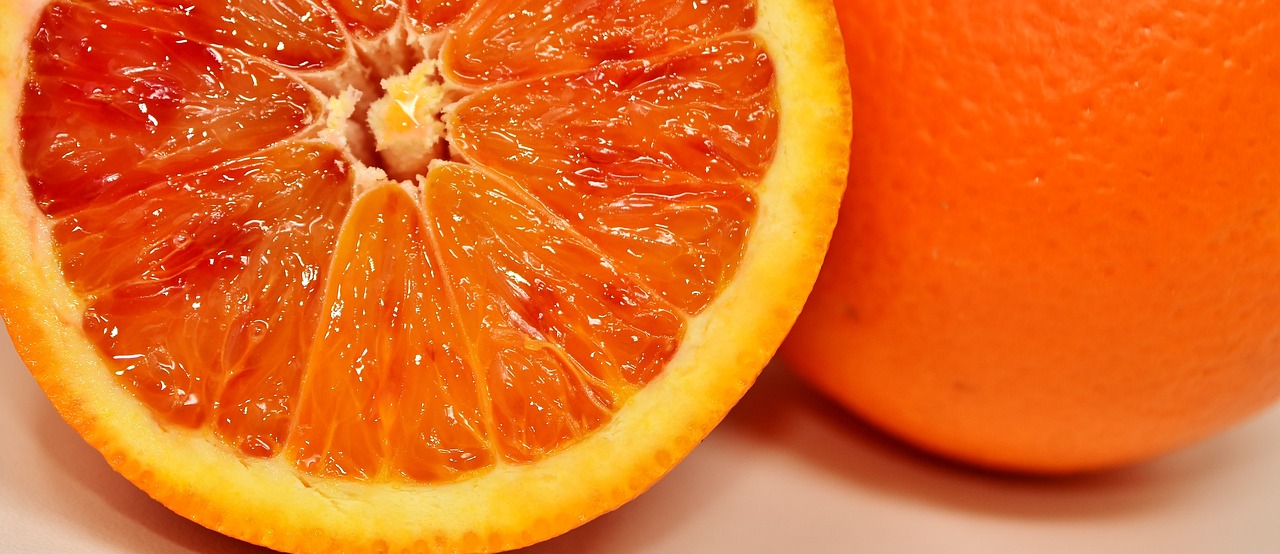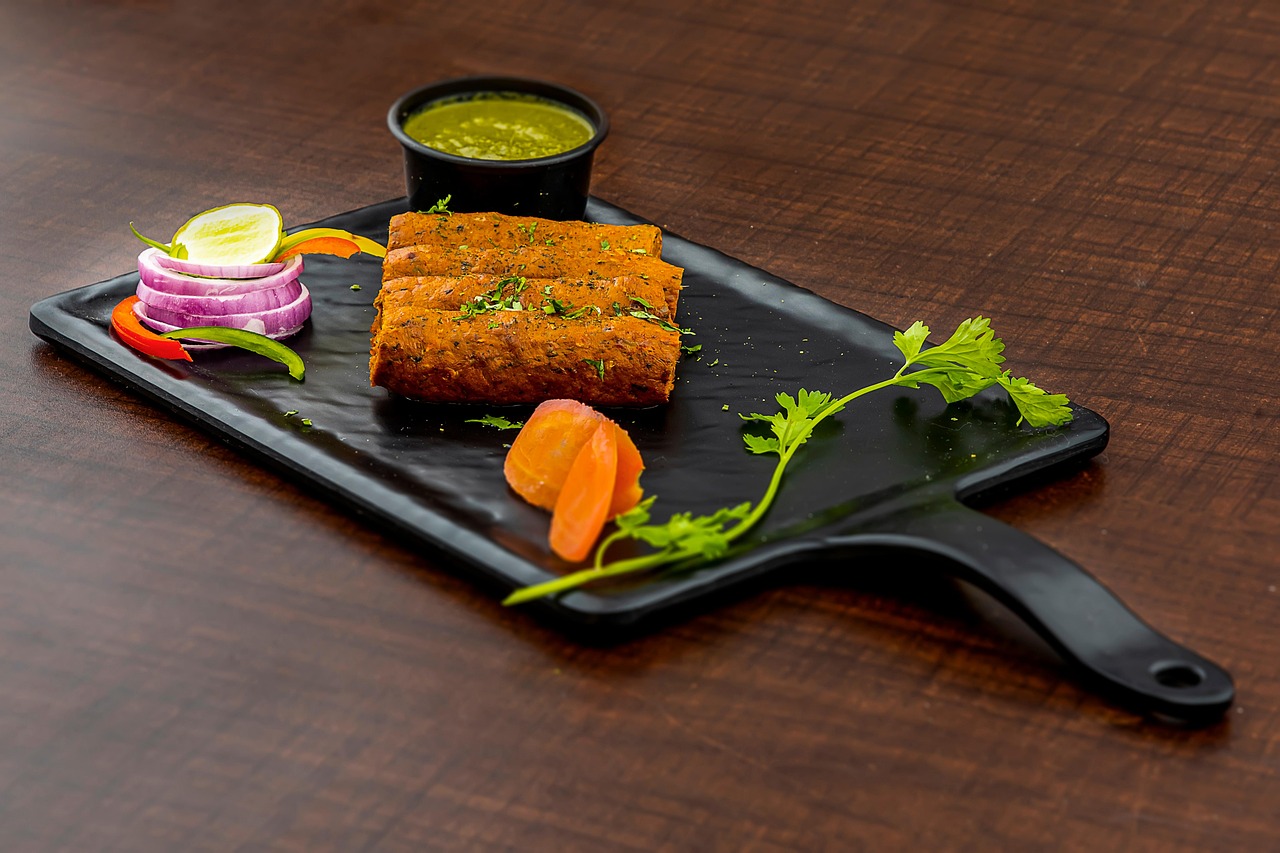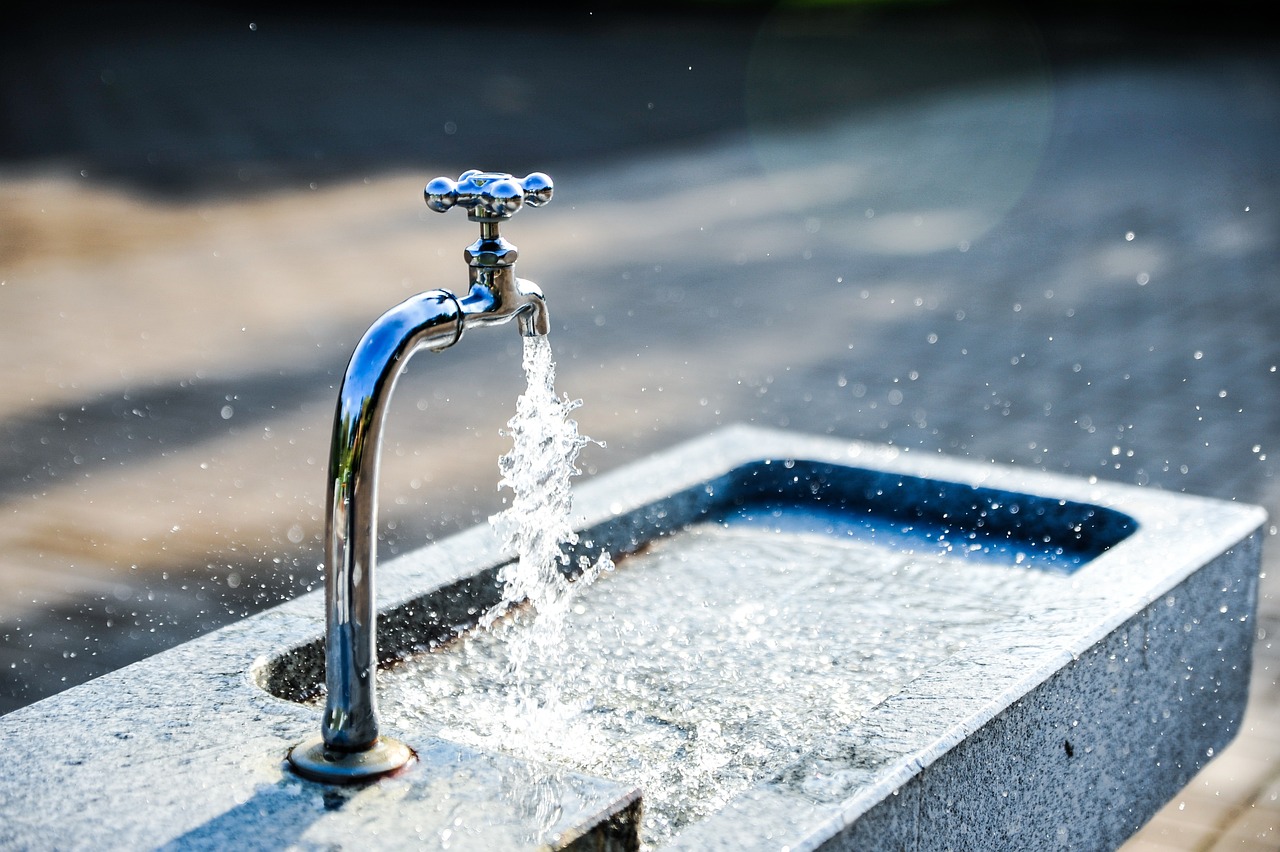Fasting blood tests are essential diagnostic tools used by healthcare providers to assess various health conditions. One common question that arises in preparation for these tests is whether individuals can drink water beforehand. This article will provide clear insights into fasting protocols, the significance of hydration, and expert recommendations to ensure you are well-prepared for your upcoming test.
Understanding Fasting Blood Tests
Fasting blood tests typically require individuals to refrain from eating and drinking anything other than water for a specific period, usually 8 to 12 hours. These tests are crucial for obtaining accurate measurements of substances like glucose, cholesterol, and other markers that can indicate health issues. The absence of food helps to eliminate variables that could skew results, making the tests more reliable.
Why is Fasting Important?
Fasting plays a vital role in ensuring the accuracy of blood test results. Consuming food or certain beverages can lead to fluctuations in blood sugar and lipid levels, potentially resulting in misleading outcomes. For instance, eating can temporarily raise glucose levels, causing a false diagnosis of diabetes or prediabetes.
- Effects of Food on Blood Test Results: Eating before a test can interfere with the measurement of various substances. For example, both glucose and cholesterol levels can be significantly impacted by recent food intake.
- Glucose Levels and Fasting: Fasting helps in accurately assessing blood sugar levels, which is crucial for diagnosing conditions like diabetes.
- Cholesterol Tests and Fasting: Fasting is often recommended before lipid panel tests to ensure accurate cholesterol readings.
Exceptions to Fasting Guidelines
While fasting is generally required, there are exceptions. Some tests, such as certain thyroid function tests, may not necessitate fasting. Always consult your healthcare provider for specific instructions based on the tests you will be undergoing.
Can I Drink Water Before a Fasting Blood Test?
The question of whether you can drink water before a fasting blood test is one that often causes confusion. The good news is that drinking water is typically allowed and can be beneficial. Staying hydrated can make the blood draw easier and more efficient.
The Role of Hydration
Proper hydration is essential as it helps to expand your veins, making it easier for healthcare professionals to draw blood. Additionally, drinking water does not impact the levels of glucose or cholesterol in your blood, so it will not interfere with the test results.
Recommendations from Healthcare Professionals
Many healthcare providers encourage patients to drink water before their fasting blood tests. However, it is advisable to avoid any flavored or sugary drinks, including coffee or tea, as these can affect test outcomes. Always follow the specific guidelines provided by your healthcare provider.
Preparing for Your Fasting Blood Test
Proper preparation can alleviate anxiety and improve your experience during the test. Here are some practical tips:
- Timing Your Fasting: Ensure you understand the duration of your fast. Most tests require fasting for 8 to 12 hours, so plan your last meal accordingly.
- What to Expect During the Test: Familiarize yourself with the blood draw process. Typically, a healthcare professional will take a sample from your arm, which usually takes just a few minutes.
In summary, while fasting is crucial for accurate blood test results, drinking water is generally permissible and even recommended. Always consult with your healthcare provider for personalized advice and guidelines to ensure a successful testing experience.

Understanding Fasting Blood Tests
Fasting blood tests are a crucial component of modern medical diagnostics. These tests require individuals to abstain from food and certain beverages for a specified period before the test. The primary purpose of fasting is to ensure that the results obtained are as accurate as possible, allowing healthcare providers to make informed decisions regarding a patient’s health.
When you undergo a fasting blood test, your healthcare provider is typically looking to measure specific substances in your blood, such as glucose, cholesterol, and other metabolic markers. These measurements can be pivotal in diagnosing conditions such as diabetes, heart disease, and metabolic disorders.
Importance of Fasting
Fasting is essential because the intake of food and beverages can significantly alter the levels of various substances in your bloodstream. For example, consuming food can lead to temporary spikes in blood sugar and cholesterol levels, which may not accurately reflect your baseline health status. This is particularly important for tests that assess your risk for chronic conditions.
In particular, glucose levels are highly sensitive to food intake. When you eat, carbohydrates are broken down into glucose, leading to elevated blood sugar levels. Fasting allows for a more accurate assessment of your body’s ability to regulate blood sugar, which is vital for diagnosing conditions like Type 2 diabetes.
Cholesterol and Fasting
Similar to glucose, cholesterol levels can fluctuate based on recent meals. A fasting lipid panel is commonly performed to measure levels of LDL (low-density lipoprotein) and HDL (high-density lipoprotein) cholesterol. Fasting before this test helps ensure that the results are not skewed by the recent intake of food, providing a clearer picture of your cardiovascular health.
Exceptions to Fasting
While fasting is generally required for many blood tests, there are exceptions. Some tests, such as those measuring thyroid hormones or certain vitamin levels, may not require fasting. It’s essential to consult with your healthcare provider regarding the specific requirements for your tests.
Can I Drink Water Before a Fasting Blood Test?
One common question patients have is whether they can drink water before a fasting blood test. The good news is that most healthcare professionals agree that drinking water is not only permissible but also encouraged. Staying hydrated can make the blood draw easier and more efficient.
The Role of Hydration
Hydration plays a vital role in the blood testing process. Drinking water helps to expand your veins, making them more accessible for blood draws. Additionally, proper hydration can help alleviate feelings of dizziness or lightheadedness that some individuals may experience during the test.
Recommendations from Healthcare Professionals
Healthcare providers often recommend that patients drink clear fluids, such as water, before their fasting blood tests. However, it’s crucial to avoid any beverages containing sugars, caffeine, or other additives that could interfere with test results. Always follow the specific guidelines provided by your healthcare provider.
Preparing for Your Fasting Blood Test
Proper preparation can ease anxiety and improve your overall experience during the test. Here are some practical tips:
- Timing Your Fasting: Most fasting blood tests require you to fast for 8 to 12 hours. Plan your test in the morning to minimize the fasting period.
- What to Expect During the Test: Familiarize yourself with the testing process. A healthcare professional will typically draw blood from your arm, and the procedure usually takes only a few minutes.
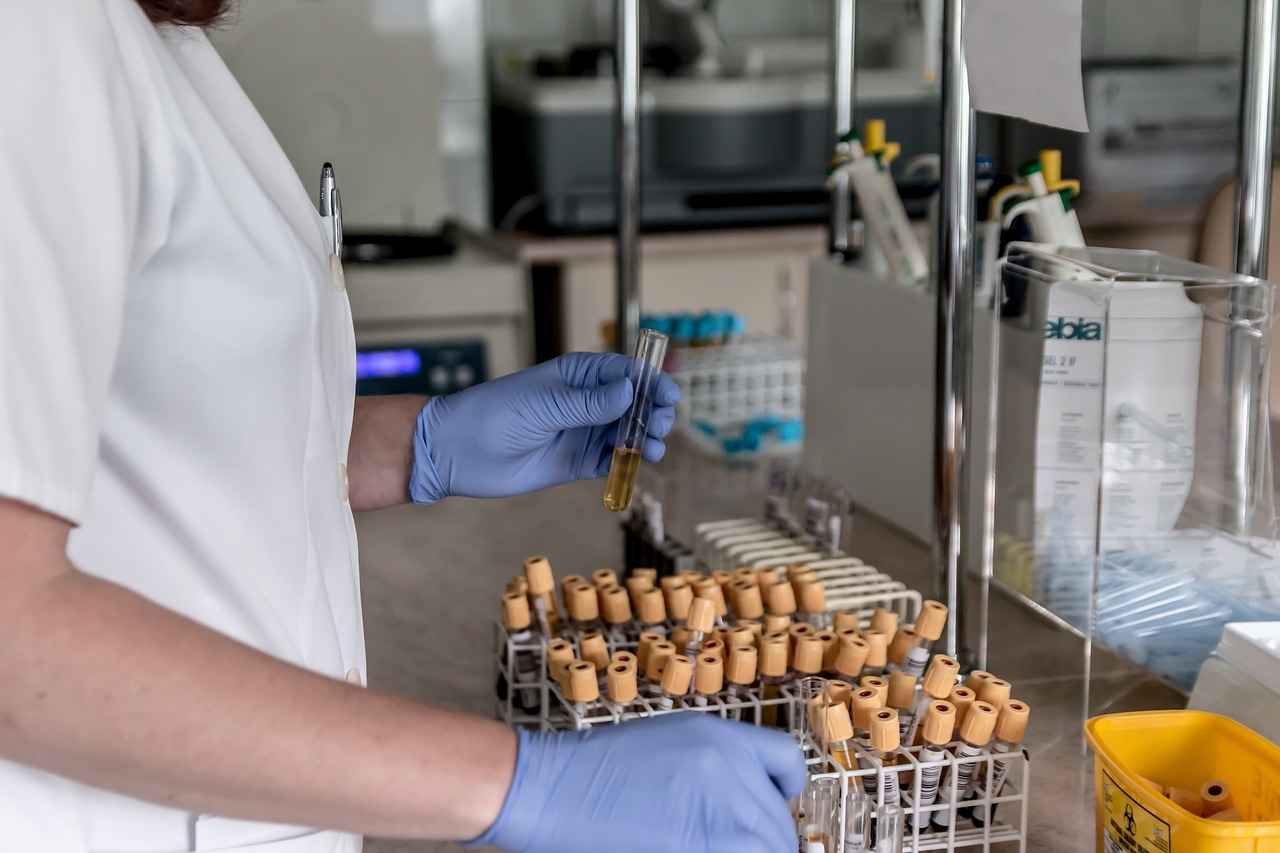
Why is Fasting Important?
Fasting is an essential aspect of many medical tests, particularly blood tests. The practice of abstaining from food and certain beverages before a test is not merely a suggestion but a crucial step to ensure accurate results. This section delves into the significance of fasting, explaining how food and drink can influence the levels of various substances measured in your blood.
When you consume food or beverages, your body undergoes a series of metabolic processes that can alter the concentration of substances in your bloodstream. For instance, glucose levels can spike dramatically after a meal, which may lead to misleading interpretations of your blood sugar control. Similarly, cholesterol levels can also fluctuate based on recent dietary intake, making fasting essential for obtaining a true reflection of your lipid profile.
| Substance | Effect of Food Intake |
|---|---|
| Glucose | Increased levels post-meal, leading to potential misdiagnosis of diabetes. |
| Cholesterol | Fluctuates based on recent meals, affecting lipid panel results. |
| Triglycerides | Elevated after eating, which can mislead cardiovascular risk assessments. |
Fasting allows for a baseline measurement of these substances, providing healthcare professionals with critical data to make informed decisions regarding your health. For instance, a fasting blood test for glucose is vital for diagnosing conditions like prediabetes and diabetes. Similarly, fasting lipid panels are crucial for evaluating cardiovascular health.
Moreover, fasting not only helps in achieving accurate results but also standardizes the testing process. When everyone follows the same fasting protocol, it minimizes variables that could skew results, allowing for more reliable comparisons across different patients.
In some cases, fasting is not just about avoiding food; it also includes abstaining from beverages other than water. While water does not contain calories and does not affect the majority of blood test results, it’s essential to confirm with your healthcare provider whether hydration is permitted before your specific test. Staying adequately hydrated can make blood draws easier and more comfortable, facilitating a smoother testing experience.
In summary, the importance of fasting before blood tests cannot be overstated. By understanding the impact of food and drink on blood test results, you can ensure that your tests reflect your true health status. Always consult with your healthcare provider for specific fasting guidelines tailored to your individual needs.
Effects of Food on Blood Test Results
When preparing for a blood test, understanding the effects of food on your results is crucial. Consuming food before a test can lead to misleading results, as various substances in the blood are sensitive to dietary intake. This section explores how specific components like glucose and cholesterol can be influenced by what you eat.
Glucose Levels
One of the most significant impacts of food on blood test results is seen in glucose levels. After eating, your body breaks down carbohydrates into glucose, which enters your bloodstream. This spike in glucose can lead to inaccurate readings during a blood test, particularly for those being tested for diabetes or prediabetes. Fasting for at least 8-12 hours before the test ensures that your glucose levels reflect your body’s baseline state, providing a more accurate assessment of your metabolic health.
Cholesterol Levels
Similar to glucose, cholesterol levels are also affected by recent food intake. Foods high in fat can temporarily elevate lipid levels in your bloodstream. For instance, consuming a meal rich in saturated fats can cause a short-term increase in triglycerides, skewing the results of a lipid panel test. To achieve precise results, healthcare professionals typically recommend fasting for at least 9-12 hours prior to these tests.
Other Substances Affected by Food Intake
- Electrolytes: Certain foods can influence levels of sodium, potassium, and calcium, which are critical for assessing kidney function and overall health.
- Hormones: Hormonal levels, such as insulin and thyroid hormones, can also be affected by recent meals, complicating the interpretation of hormonal tests.
- Vitamins and Minerals: The intake of specific vitamins and minerals may lead to fluctuations in blood test results, impacting nutritional assessments.
Why Fasting is Essential
Fasting before a blood test plays a vital role in ensuring that the results are not influenced by recent dietary choices. By abstaining from food, you allow your body to reach a steady state, leading to more reliable test outcomes. This is particularly important for tests that monitor chronic conditions or assess the risk of cardiovascular diseases.
Exceptions to the Rule
While fasting is generally recommended, there are exceptions where it may not be necessary. For instance, some tests, such as basic metabolic panels or complete blood counts, may not require fasting. It’s essential to consult with your healthcare provider regarding the specific requirements for your tests.
In summary, the consumption of food prior to a blood test can significantly alter the results, particularly concerning glucose and cholesterol levels. Adhering to fasting guidelines is crucial for obtaining accurate and reliable results, which in turn aids in effective diagnosis and treatment planning.
Glucose Levels and Fasting
When it comes to managing diabetes or assessing overall health, understanding glucose levels is crucial. Glucose levels are particularly sensitive to food intake, making accurate measurements essential for effective treatment and monitoring. This section delves into the significance of fasting before blood tests to ensure precise glucose readings.
Fasting blood tests typically require individuals to abstain from all food and beverages except for water for a specified period, usually 8 to 12 hours. This practice is not merely a formality; it is a scientifically backed method to obtain reliable data regarding your body’s glucose levels. When you eat, your body breaks down carbohydrates into glucose, leading to temporary spikes in blood sugar levels. These fluctuations can mislead healthcare providers regarding your metabolic health.
Why Fasting Matters for Glucose Testing
- Baseline Measurement: Fasting helps establish a baseline glucose level, providing a clearer picture of your body’s insulin response and glucose metabolism.
- Minimized Variability: By avoiding food intake, you reduce the variability in glucose levels, which can be influenced by the type and timing of your meals.
- Improved Accuracy: Accurate fasting glucose readings are critical for diagnosing conditions such as prediabetes and type 2 diabetes.
Research indicates that fasting glucose levels can be more predictive of long-term health outcomes. For example, a fasting blood sugar level of 100 mg/dL or higher may indicate prediabetes, while levels of 126 mg/dL or higher can suggest diabetes. These thresholds are vital for early intervention and management strategies.
How Long Should You Fast?
The duration of fasting can vary based on the specific test ordered by your healthcare provider. Typically, a fast of 8 to 12 hours is recommended. It’s important to follow your doctor’s instructions closely, as they may have specific requirements based on your medical history.
Hydration During Fasting
While fasting generally prohibits food and caloric beverages, drinking water is usually permitted and encouraged. Staying hydrated can facilitate the blood draw process and ensure that your veins are more accessible. However, it’s essential to avoid any flavored waters or beverages that contain calories or sugar.
Consulting Your Healthcare Provider
Before undergoing any fasting blood tests, it is advisable to consult your healthcare provider. They can offer tailored advice based on your individual health needs and any medications you may be taking. Some medications can affect glucose metabolism, and your doctor may adjust your fasting requirements accordingly.
In summary, fasting before glucose testing is a critical step in obtaining accurate blood sugar levels. By understanding the importance of fasting and adhering to guidelines, you can ensure that your test results reflect your true metabolic state, allowing for better management of your health.
Cholesterol Tests and Fasting
When it comes to cholesterol testing, the accuracy of the results is paramount for effective health assessments. One key factor that influences cholesterol levels is recent food intake. This section delves into why fasting is crucial before undergoing a lipid panel test, which measures cholesterol and triglycerides in the blood.
Cholesterol levels can fluctuate significantly based on the foods consumed prior to testing. For instance, a meal high in saturated fats can temporarily elevate cholesterol levels, potentially leading to misleading results. This is why healthcare professionals often recommend fasting for at least 9 to 12 hours before a lipid panel test. By abstaining from food, you allow your body to reach a baseline state, providing a clearer picture of your cholesterol levels.
- Understanding Lipid Panels: A lipid panel typically measures total cholesterol, low-density lipoprotein (LDL), high-density lipoprotein (HDL), and triglycerides. Each of these components plays a distinct role in heart health.
- Impact of Food on Cholesterol: Consuming foods rich in fats can lead to temporary spikes in cholesterol levels. For example, meals heavy in red meat, dairy, or fried foods can influence the readings significantly.
- Fasting Benefits: Fasting before a cholesterol test provides a more accurate assessment of your cardiovascular risk. It eliminates the variability introduced by recent meals, ensuring that healthcare providers can make informed decisions based on your results.
Additionally, it is important to note that while fasting is typically recommended, some recent studies suggest that non-fasting lipid panels may still provide useful information for certain individuals. However, for those with specific health risks or conditions, fasting remains the gold standard.
Staying hydrated during the fasting period is also essential. Drinking water is generally permitted and can help facilitate the blood draw, making it easier for healthcare professionals to obtain a sample. However, it is crucial to avoid any beverages that contain calories, such as juices or coffee, as these can alter your results.
In summary, fasting before a cholesterol test is vital for obtaining accurate and reliable results. By adhering to fasting guidelines, you can ensure that your lipid panel reflects your true cholesterol levels, aiding in the effective management and assessment of your heart health. Always consult with your healthcare provider regarding specific fasting instructions tailored to your individual health needs.
Exceptions to Fasting Guidelines
While fasting is generally required for most blood tests, there are specific instances where it may not be necessary. Understanding these exceptions can alleviate anxiety and help you prepare more effectively for your medical evaluations. Below are some key scenarios where fasting may be waived:
- Non-Fasting Blood Tests: Certain tests, such as complete blood counts (CBC) and basic metabolic panels (BMP), do not require fasting. These tests measure various components of your blood and are not significantly affected by recent food intake.
- Emergency Situations: In urgent medical situations, healthcare providers may need to perform blood tests without waiting for the patient to fast. Immediate results can be crucial for diagnosing conditions such as infections or acute illnesses.
- Medication Monitoring: If you are undergoing tests to monitor the effects of specific medications, fasting may not be necessary. For instance, tests for thyroid function or anticoagulant therapy can be conducted without fasting.
- Pregnancy: Pregnant women may be exempt from fasting for certain tests, as their nutritional needs differ. Healthcare providers will assess the necessity of fasting based on the specific tests ordered.
- Specific Health Conditions: Patients with certain health conditions, such as diabetes, may be advised not to fast, as it can lead to dangerously low blood sugar levels. In such cases, healthcare providers will tailor fasting requirements to individual needs.
Consulting with Your Healthcare Provider
It is essential to discuss your specific situation with your healthcare provider. They can provide personalized advice based on your medical history, the tests being performed, and any medications you are taking. This consultation ensures that you are well-prepared and that your test results will be accurate and meaningful.
Understanding the Importance of Fasting
While exceptions exist, fasting remains a critical component of many blood tests. It helps to ensure that the results are not skewed by recent food or drink intake. For tests measuring glucose and lipid levels, for instance, fasting allows for a clearer picture of your baseline health. If you fall into one of the categories where fasting is not required, it is still wise to follow your healthcare provider’s guidance to maintain the integrity of your results.
Final Thoughts on Fasting Exceptions
Fasting requirements can vary based on numerous factors, including the type of test and individual health circumstances. By understanding the exceptions to fasting guidelines, you can approach your blood tests with greater confidence. Always prioritize communication with your healthcare team to ensure that you are following the best practices for your specific situation.
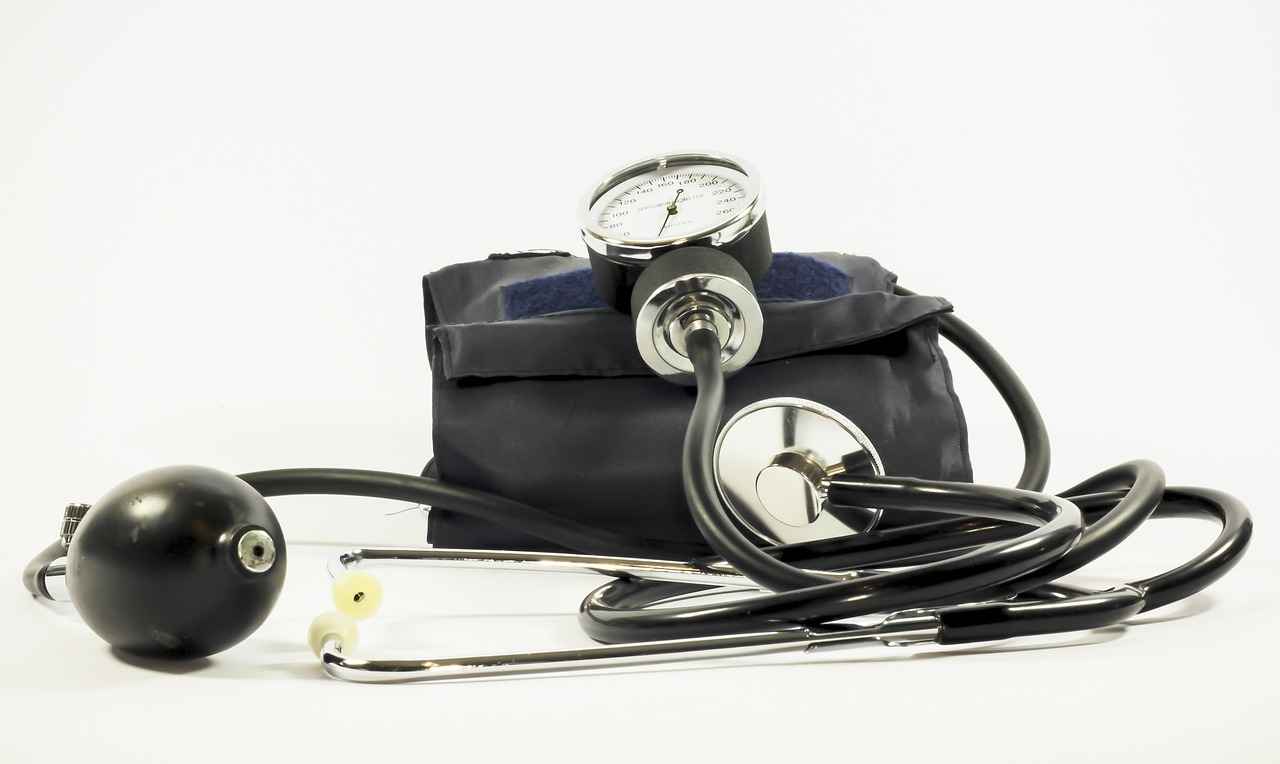
Can I Drink Water Before a Fasting Blood Test?
Understanding the rules surrounding water consumption before a fasting blood test can be perplexing for many patients. This section aims to clarify whether drinking water is allowed and how it may influence test results.
When preparing for a fasting blood test, one common question arises: Is it permissible to drink water? The answer is generally yes, but there are important nuances to consider. Water is typically encouraged because it helps maintain hydration, which can make the blood draw easier and more successful.
Staying hydrated is crucial for several reasons:
- Facilitates Blood Draw: Proper hydration can lead to better vein visibility, making it easier for healthcare professionals to draw blood.
- Reduces Discomfort: Being well-hydrated may minimize discomfort during the blood draw.
- Ensures Accurate Results: While water does not significantly alter most blood test results, it can help ensure that the sample is adequate for analysis.
Drinking plain water does not typically interfere with the results of most fasting blood tests. However, it’s essential to note:
- Water does not contain calories or sugars, so it does not impact glucose levels.
- Hydration can help dilute blood components slightly, but this effect is minimal and usually not clinically significant.
- For tests that require strict fasting, such as lipid panels, it’s best to consult your healthcare provider for specific guidance.
Healthcare professionals often recommend the following:
- Drink Water: Aim for 1-2 glasses of water in the hours leading up to your test.
- Avoid Other Beverages: Steer clear of coffee, tea, or any drinks with calories or additives.
- Follow Specific Instructions: Always adhere to any specific guidelines provided by your healthcare provider.
Proper preparation can alleviate anxiety and enhance your testing experience. Here are some practical tips:
- Timing: Generally, fasting for 8-12 hours is recommended, but verify the requirements for your specific test.
- Schedule Wisely: Plan your appointment early in the morning to minimize fasting duration.
- Stay Calm: Understand what to expect during the test to reduce nervousness.
In conclusion, drinking water before a fasting blood test is generally acceptable and can be beneficial. By staying hydrated, you not only make the process easier but also ensure a more accurate sample for your healthcare provider. Always consult with your healthcare provider for personalized advice regarding your fasting blood test preparation.
The Role of Hydration
Staying hydrated is crucial for a variety of health functions, and this is especially true when it comes to blood draws. Many individuals may wonder how drinking water can facilitate the testing process without impacting the accuracy of their results. In this section, we delve into the significance of hydration before a fasting blood test and how it can enhance the overall experience.
First and foremost, adequate hydration can make the blood draw process smoother. When you are well-hydrated, your blood volume increases, which can lead to easier access to veins. This is particularly important for individuals who may have difficult veins or experience anxiety during blood draws. A well-hydrated state can help in locating veins more efficiently, thereby reducing discomfort and the likelihood of multiple attempts.
Moreover, hydration plays a vital role in maintaining the integrity of blood samples. While fasting typically involves refraining from food and certain beverages, water is generally considered acceptable and even beneficial. Drinking water before a fasting blood test does not interfere with the measurement of most substances in the blood, such as glucose or cholesterol levels. In fact, many healthcare professionals recommend drinking water to ensure that the patient is in optimal condition for testing.
It is important to note that while hydration is encouraged, individuals should avoid any beverages other than water, especially those containing calories or caffeine, as these can alter test results. The consumption of water helps to flush out toxins and can aid in the accuracy of the results by providing a clearer sample.
In addition to physical benefits, staying hydrated can also have a positive impact on your mental state before the test. Many patients experience anxiety when facing medical procedures. Knowing that you have taken steps to prepare, such as drinking sufficient water, can help alleviate some of this stress. It fosters a sense of control over the situation and can improve your overall experience.
Healthcare professionals often recommend drinking at least 8 ounces of water in the hours leading up to your fasting blood test. This amount is usually sufficient to ensure proper hydration without overwhelming your system. However, it is always best to follow the specific instructions provided by your healthcare provider, as recommendations may vary based on individual health needs.
In summary, the role of hydration in preparing for a fasting blood test cannot be overstated. Drinking water is not only permissible but also beneficial in facilitating the blood draw process while ensuring accurate test results. By staying hydrated, you can enhance your comfort and improve the efficiency of the testing experience.
Recommendations from Healthcare Professionals
When preparing for a fasting blood test, understanding the guidelines regarding water intake is essential. Healthcare professionals frequently emphasize the importance of hydration while also clarifying the rules about drinking water before these tests. This section will explore the recommendations from medical experts concerning water consumption prior to fasting blood tests.
Why Hydration Matters
Staying hydrated is vital for a variety of reasons, especially when it comes to blood tests. Dehydration can lead to constricted veins, making it more difficult for healthcare providers to draw blood. Furthermore, adequate hydration can help improve the quality of the blood sample, ensuring more accurate test results.
General Guidelines on Water Intake
- Most healthcare providers agree that drinking water is permissible before a fasting blood test.
- Clear water is typically the only recommended beverage, as it does not contain calories or additives that could interfere with test results.
- Patients are generally advised to avoid caffeinated or carbonated beverages, as these can lead to dehydration or other complications.
Expert Insights on Water Consumption
Many healthcare professionals recommend drinking a moderate amount of water in the hours leading up to your test. According to Dr. Jane Smith, a renowned endocrinologist, “Staying hydrated can make the blood draw easier and less painful. Just remember to stick to plain water.”
Dr. John Doe, a general practitioner, adds, “Water won’t affect your fasting blood test results. It’s important to ensure that your body is well-hydrated, especially if you have to fast for an extended period.”
Potential Risks of Not Drinking Water
Failing to drink water can lead to dehydration, which may complicate the blood draw process. In some cases, dehydration can also lead to inaccurate readings for certain tests, such as those measuring electrolyte levels. Therefore, it is crucial to maintain a balance.
Listening to Your Healthcare Provider
While general guidelines suggest that water is acceptable, it is always best to consult with your healthcare provider for personalized advice. They may have specific recommendations based on your health history and the type of tests you are undergoing. Always follow their instructions to ensure optimal outcomes.
Conclusion
In summary, healthcare professionals largely agree that drinking water before a fasting blood test is not only permitted but encouraged. Proper hydration can facilitate the blood draw process and improve the accuracy of test results. Always consult with your healthcare provider for tailored advice and follow their specific recommendations to ensure a smooth testing experience.
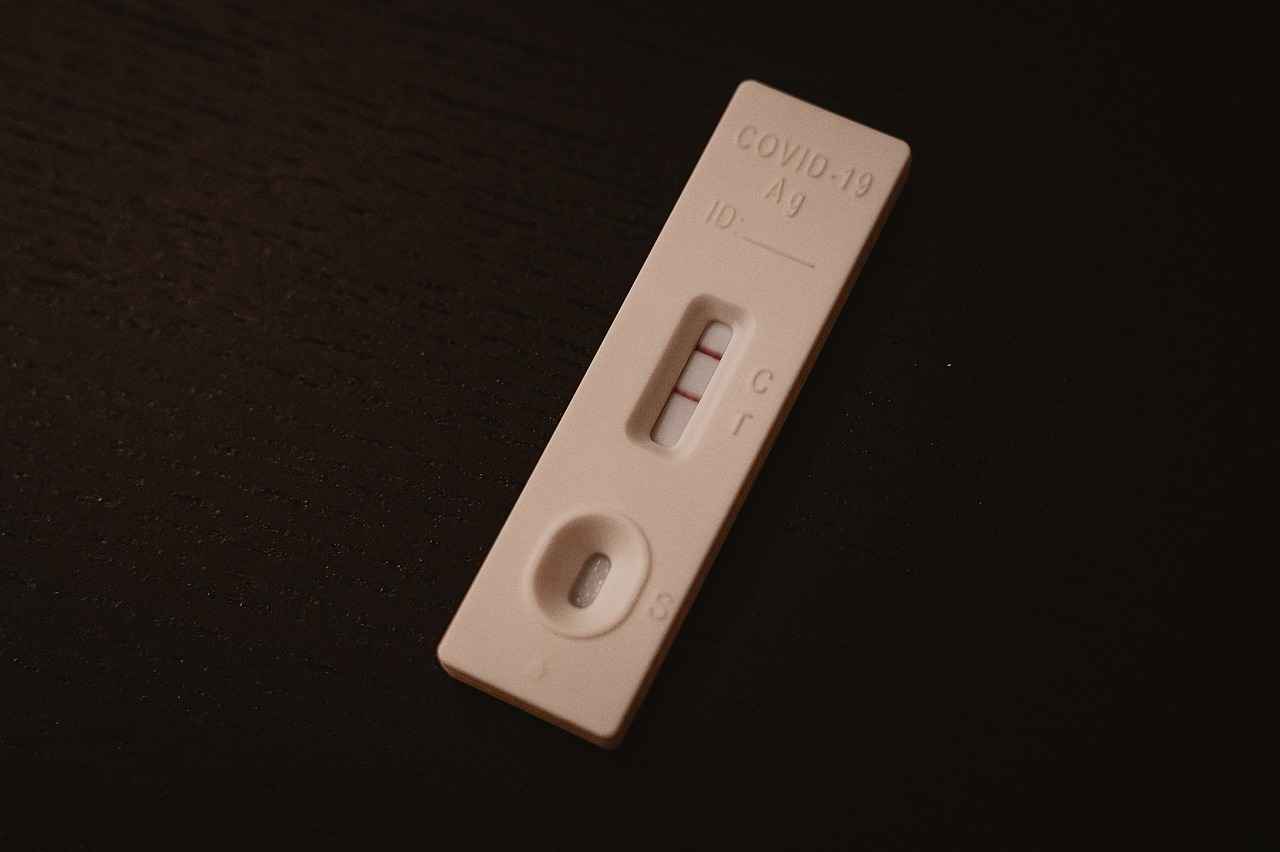
Preparing for Your Fasting Blood Test
Proper preparation can significantly ease anxiety and enhance your overall testing experience. Many individuals feel apprehensive about fasting blood tests, but with the right strategies, you can approach the day with confidence. This section offers practical tips to help you prepare effectively for your fasting blood test.
- Understand Your Fast: It’s essential to know how long you need to fast before your test, typically between 8 to 12 hours. This means no food or beverages, except for water. Familiarize yourself with the specific instructions provided by your healthcare provider.
- Stay Hydrated: While you must refrain from eating, drinking water is usually allowed and can be beneficial. Staying hydrated makes it easier for the technician to draw your blood, as well-hydrated veins are more prominent and accessible.
- Plan Your Schedule: Choose a time for your test that aligns with your daily routine. Early morning appointments are often ideal, as they allow you to fast overnight and minimize disruption to your day.
- Avoid Strenuous Activities: In the hours leading up to your test, try to avoid intense physical activity. Exercise can affect your blood sugar and hydration levels, potentially leading to inaccurate results.
- Communicate with Your Healthcare Provider: If you have concerns or specific health conditions, discuss them with your healthcare provider. They can provide tailored advice and address any questions you may have about the fasting process.
- Prepare for the Test Day: On the day of your test, wear comfortable clothing and consider bringing a light snack for after the test, as you may feel hungry or lightheaded once your fast is over.
What to Expect During the Test
Knowing what to expect can help alleviate concerns. Typically, a fasting blood test involves:
1. Arrival at the testing facility on time.2. Checking in and confirming your fasting status.3. A healthcare professional will clean the area of your arm and insert a needle to draw blood.4. The entire process usually takes just a few minutes.
After the test, you may be advised to consume a small meal or snack to replenish your energy.
Managing Anxiety: If you feel anxious about the test, consider practicing relaxation techniques such as deep breathing or visualization. Remind yourself that this test is a routine procedure that provides valuable information about your health.
By following these tips, you can ensure a smoother experience during your fasting blood test, making the process less daunting and more manageable.
Timing Your Fasting
When it comes to fasting blood tests, understanding the timing of your fast is crucial. The duration of your fast can significantly influence the accuracy of your test results. In this section, we will explore how long you should fast before your blood test and provide best practices for scheduling your fasting period effectively.
Generally, fasting for 8 to 12 hours is recommended before a blood test. This timeframe allows your body to metabolize any food and drink consumed, leading to more accurate readings of various substances in your blood. For instance, tests measuring glucose and cholesterol levels typically require a minimum fasting period of 8 hours. However, it’s essential to follow your healthcare provider’s specific instructions, as different tests may have varying requirements.
To optimize your fasting experience, consider the following best practices:
- Schedule Your Test Early: Aim to schedule your blood test in the morning. This allows you to fast overnight, making it easier to adhere to the fasting period without feeling overly hungry.
- Plan Your Last Meal: Have a balanced meal the evening before your test. Focus on foods rich in fiber and protein to keep you feeling full longer.
- Avoid Caffeine: If your test requires fasting, it’s advisable to skip caffeine, as it can affect your hydration levels and potentially influence test results.
- Stay Hydrated: While you should abstain from food, drinking water is generally allowed and encouraged. Staying hydrated can make the blood draw process smoother and more comfortable.
It’s also important to note that certain medications may require adjustments during your fasting period. Always consult your healthcare provider regarding any medications you are taking and whether they should be continued during the fast.
Lastly, if you are unsure about the fasting duration required for your specific test, don’t hesitate to reach out to your healthcare provider for clarification. They can provide tailored advice based on your health needs and the type of blood test you are undergoing.
By understanding the timing of your fast and following these best practices, you can ensure that you are well-prepared for your blood test, leading to more accurate results and a smoother testing experience.
What to Expect During the Test
When preparing for a fasting blood test, understanding the process can significantly ease any anxiety you may have. This section provides a detailed overview of what to expect during the test, ensuring you feel informed and ready.
- Arrival at the Testing Facility: Upon arrival, you’ll check in at the reception desk. It’s advisable to bring any necessary paperwork, such as your doctor’s orders or insurance information.
- Initial Assessment: A healthcare professional will likely ask you a few questions about your medical history and the reason for the test. This step is crucial for ensuring accurate results.
- Preparation for the Blood Draw: You may be asked to sit in a comfortable chair or lie down. It’s important to stay relaxed, as anxiety can affect your blood pressure and heart rate.
Before the blood draw, the phlebotomist will clean the area on your arm where the blood will be drawn, typically the inside of your elbow. This is done to minimize the risk of infection.
Blood Draw Procedure: The procedure itself is relatively quick. The phlebotomist will use a sterile needle to draw blood from your vein. You might feel a slight pinch or sting, but this usually lasts only a moment. The amount of blood taken will depend on the tests being conducted, but it is generally minimal.
After the blood is drawn, the phlebotomist will apply a small bandage to the site. You may be advised to keep the area clean and dry for a few hours. Some facilities may offer you a snack or drink post-test, especially if you have been fasting for an extended period.
Duration of the Test: Most fasting blood tests are completed in a matter of minutes, but the entire process, including waiting time, may take longer. Typically, expect to spend about 30 minutes to an hour at the facility.
Once the blood sample is collected, it will be sent to a laboratory for analysis. Depending on the tests ordered, you may receive your results within a few days or even sooner.
Post-Test Considerations: After your test, it’s essential to resume normal activities. If you feel lightheaded or dizzy, sit down for a moment and drink some water or juice. If you have any concerns after the test, don’t hesitate to contact your healthcare provider.
Understanding these steps can help alleviate any concerns you may have about the fasting blood test. Being informed empowers you to manage your health effectively.
Frequently Asked Questions
- Can I drink water before my fasting blood test?
Yes, you can drink water before your fasting blood test! Staying hydrated is actually beneficial as it helps with the blood draw. Just make sure to avoid any drinks that contain calories or sugar.
- How long should I fast before my blood test?
Typically, you should fast for 8 to 12 hours before your blood test. It’s best to follow the specific instructions given by your healthcare provider, as different tests may have varying requirements.
- What happens if I accidentally eat or drink something?
If you accidentally consume food or drinks (other than water), it’s important to inform your healthcare provider. They may need to reschedule your test to ensure accurate results.
- Are there any exceptions to fasting?
Yes, there are exceptions. Some tests do not require fasting, so always check with your healthcare provider for the specific requirements related to your test.
- What should I expect during the blood test?
During the test, a healthcare professional will draw blood from your arm. It’s quick, usually taking just a few minutes. If you’re feeling anxious, just remember it’s a routine procedure!
